Why is it so important to know which are the most powerful families who have continued to rule the world for centuries? Modernity has known an increasingly strong influence of finance on human life, both social, family and individual. See, for example, liberalism and socialism. However, philosophy, that is the ideas that underlie every philosophical movement, has strongly brought about great changes in history. Serious errors or great achievements in the theological, political and moral fields are always preceded by errors or philosophical truths, which human reason has always tried to investigate and focus on. When we touch on this topic we must therefore avoid the two opposite errors. In fact, there is often a tendency, by default, to deny any influence of high finance on modern history; or, on the other hand, by excess, we try to see only this influence, neglecting any other, for example that of ideas.

Certainly Humanism and the Renaissance influenced the philosophical, theological, literary and artistic culture of Europe of the fourteenth-sixteenth century, but it cannot be forgotten that without the gold of the Medici, Marsilio Ficino and Giovanni Pico della Mirandola could not have philosophized as quietly as they did. Therefore it is good to see the two sides of the coin, the cultural one and the financial one, which until some time ago still went hand in hand, while today it would seem that gold has almost completely occupied the place left free by spirit and ideas.
It is undeniable that a certain political, social and theological form (Marxism, Bolshevism and state atheism) inevitably follows from a certain philosophy (for example, materialism). All theological heresies are preceded by philosophical sophisms and after them one inevitably arrives at more or less bloody political revolutions.
So let’s try to grapple with one side of the coin, the more practical and “vile” but no less strong, which has developed especially since the last three centuries: the influence of the most powerful families on human history.
We will try to avoid any simplification and generalization, but at the same time it will be necessary not to close our eyes to a reality (that of high finance), which had also its role in our history. Unfortunately, with the end of the twentieth century, culture (philosophical, theological, artistic, musical) has really died (even if not totally), especially in our dear Europe and it has been almost completely replaced by the technological and financial development which, in most of the cases, has become inversely proportional to the reasoning one.
We note, above all and “thanks” to recent times, how schools, politics, even churchmen are almost totally absent, eclipsed, transmuted, having left the field to technocracy or rather to the speculation of biopolitical industry, which seems to have become the new “divinity” of humanity. However, it would be wrong not to see that at the origin and for the purpose of this business drift there is a philosophical conception: transhumanism, which is a form of digitized, robotic and chemically obtained pantheism, through the eugenics of nano / particles. So the role of finance, even in this very sad era of profound crisis of logic and spirit, is certainly enormous, but not even the philosophical / theological, at least ideological one should not be underestimated. Moreover, even the businessmen have their own more or less materialistic philosophy, be it liberal and individualist or socialist and collectivist.
Also for this reason it remains undeniable that without knowing realities such as Bilderberg, Trilateral, CFR, Club of Rome or Mont Pélerin Society, it is very difficult to be able to ascertain what is happening in the world, at least since the 1950s.
The most powerful families and their influence on the history of humanity
Having made this premise, which we certainly believe for many to be rhetorical, let’s proceed with a more detailed analysis; an analysis that will accompany us in several posts. Studying common modern history books, one rarely encounters the names of the Rothschild, Warburg, Rockefeller, Elkann or Lazard families. Yet, since the end of the eighteenth century, they have exerted an enormous influence on human history, both from a financial and a political point of view.
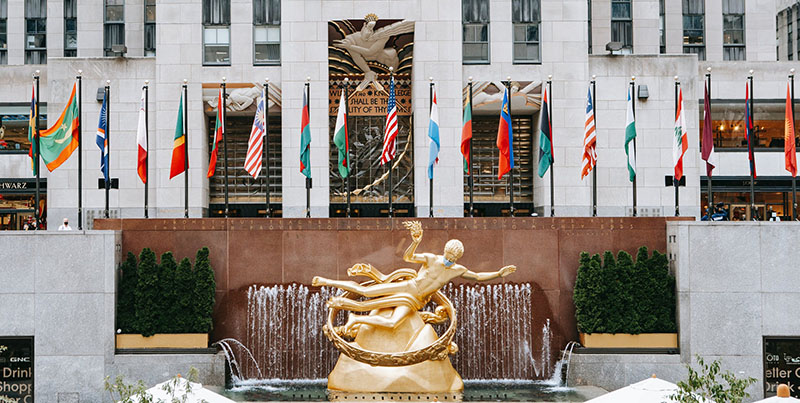
The most powerful families, those of bankers belonging to high finance, especially since the eighteenth century, have almost all related to each other, when their heads of families understood the importance of not making war or competition, perceiving the importance to join forces to obtain the domination of the financial market over the whole world and therefore, indirectly, also of political and social power.
In doing so, these families have been able, with a lot of foresight and cunning, to lend money to the sovereigns of almost the whole world to become then, gradually and more and more, the monetary masters of their own political sovereigns, who had become their creditors and being able to , therefore, taxing the peoples over whom the sovereigns seemed to govern, but who were actually directed, from “behind the scenes”, by the bankers who had lent them the money they needed to maintain their political power. This power thus came to depend more and more on the financial one, absolutely devoid of political legitimacy, which through the apparent sovereigns really reigned, without being seen, over the peoples.
With the dominance of the bourgeoisie over the aristocracy (18th century) these families gradually became the hidden, deepest and strongest power of the nations, which were still apparently governed by law and by force by the monarchs, but which in reality depended on the money of the gnomes of high finance to which the princes had gone into debt.
Thus the kingdoms and principalities were no longer substantially territorial, political, juridical and legislative, but began to be above all economic / financial; they began to be born in Europe and then moved to the “New World”. The European financiers, after having economically conquered the courts of the “Old Continent”, moved to the Americas (and especially North America) not without having left some of their relatives to continue the work begun in Europe; and already having an eye on the Middle, Near and Far East.
It is not possible to fully understand what lies beneath the events of human history, if we do not bring ourselves to the knowledge of the most powerful families and their genealogy; in fact, it is a question of families who move from one part of the world to another to dominate it, in its entirety, financially. They had understood in fact that this is the essential condition for directing it also politically, hiding behind the appearances of politicians (be they kings or republican presidents), since money is mostly aimed at power, just as avarice is dependent on pride and relating to it.
The bankers are the real directors who direct the actors (the political rulers) and make them do what is most useful for their finances and their boundless desire for power. In short, it is the puppeteers who direct the strings, who make the extras move on the stage. In the best books of modern and contemporary history we talk about the actors, the directors being sporadically mentioned only in passing.
How the Rothschilds Began
The Rothschilds, as a financially important family, derive from the crossing of the Hahn-Elkann family of Ashkenazi rabbis (who were already famous and wealthy bankers in the sixteenth century) with that of the Worms.
The Elkanns or Elchanans are a much older family than the Rothschilds; they were rich bankers as early as the sixteenth century and are the ancestors of Mayer Amschel, the forefather of the Rothschild bankers, who lived towards the end of the eighteenth century. The Elkanns, like the Rothschilds, are also originally from Frankfurt. Their progenitor, Hane Elkann zur roten Rose, died in 1550. He was related to the Worms (who were originally from the German city of the same name near Frankfurt), marrying Fogele Worms.
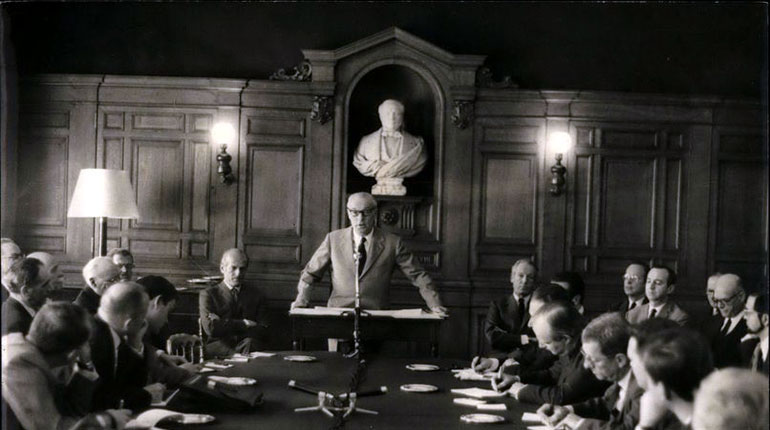
The Elkanns are very well known in Italy today because in 1975 they became related to the Agnelli family, when Alain Elkann (1950) married Margherita Agnelli, the daughter of Giovanni and the mother of Lapo and John (1976), the current president of the FIAT. The kinship between the Agnelli and the Elkanns led to the merger between J. P. Elkann Banque, J. P. Elkann Financière, IFIL of the Elkanns with the FIAT group, EXOR and Agnelli’s IFI.
The first Rothschild to rise to some prominence in the world of finance was, as we have mentioned, Mayer Amschel Rothschild, who was born in the Frankfurt ghetto on February 23, 1744. He came from a family of Ashkenazi rabbis from Worms. Mayer Amschel was a skilled money changer, well versed in the knowledge of ancient coins, who became a consultant and supplier to many wealthy collectors. He was also a cashier in the Oppenheimer bank
The name Rothschild comes from the German Roth (red) and Schild (shield), it was derived from the sign that was located on the workshop of the homonymous family. At the age of 25, Mayer Amschel had as a client the Prince of Hesse William IX, who was used to renting his best soldiers to foreign sovereigns, earning a lot from this activity. He hired good soldiers to the King of England to fight in North America against General George Washington.
Mayer Amschel had the shrewdness to administer, invest and increase the enormous wealth of William IX, who returned his favor by giving him the capital to open his own bank in Frankfurt. Mayer Amschel had ten children, including five girls and five boys. His wife was a woman from the powerful and wealthy Schnapper banking family, who in turn were related to the Worms.
Amschel was also able to invest and “administer” profitably his ten children, through the tactic of cross-marriages with other wealthy European Jewish banker families.
One of his daughters married a descendant of the Montefiore of London who then emigrated to Livorno. This union “gave way to an impressive financial partnership between the Rothschilds and the Montefiores, starting with the insurance company Alliance (the current RSA – Royal & Sun Alliance, one of the largest insurance multinationals in the world), which the two founded in 1824 “.
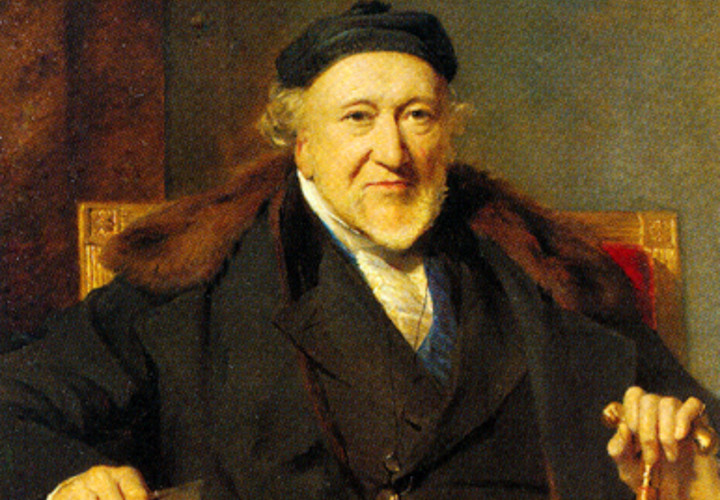
Mayer Amschel then sent his five sons to open five branches in the major European countries at the time. One stayed in Frankfurt, another went to London, another to Paris, still another to Naples and finally one to Vienna. “In January 1880, thanks to the privileged relationship with the House of Hesse, our bankers had become financial agents of the Emperor of Austria”.
Their wealth grew out of all proportion, especially due to their ability to transfer the funds of kings from one nation to another, even in emergency situations such as in the event of war, which often saw nations lined up against each other in the which were the five branches of the Rothschilds, who could, thus, do business with any war; since the winner would be in one of the five aforementioned nations and the loans made by the Rothschilds to the kings to wage war always had to be recovered, as the defeated nation would have to reimburse (by borrowing from the Rothschild branch located in its territory) the winning nation ( where another branch of the Rothschilds was located).
The most powerful families and Waterloo
The economic affairs of the five Rothschild brothers began to become decisive on the European political scene when, as Jean Bouvier explains, Napoleon I’s France was defeated by Wellington’s England in the financial field (more that war) of Waterloo.
Indeed, it was the loans of the English Rothschilds to Wellington that led to Napoleon’s defeat. France then had to compensate England for the war expenses by asking for a large loan from the French Rothschilds. Therefore, both the victorious England and even more the defeat of France were indebted from the Franco / English war, while the Rothschilds were the ones who really got rich. After that, again the French Rothschilds lent the funds to finance the accession to the throne of the French king Louis XVIII.
The German Rothschilds also financed the Prince of Hesse William IX, who had been defeated by Napoleon, asking William that “equal rights be established between the inhabitants of the ghetto and the rest of the population of Hesse, and this in exchange for a payment of a sum equal to twenty years of taxes, despite the fact that the emperor was determined to halt the process of emancipation of the Jews triggered by the French Revolution “.
Those deposits at Banco San Giorgio in Genoa
The fortune of the Rothschilds took a huge leap forward when Napoleon gave the French Rothschilds the task of selling the gold bars, which the French royal family had deposited in the Banco di San Giorgio in Genoa and which the French Republic wanted to seize.
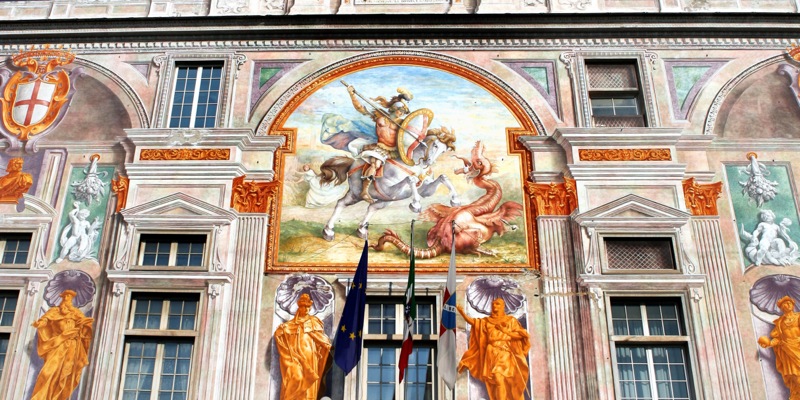
When Genoa was occupied by Napoleonic soldiers, the Rothschilds’ main financial competitor, namely Banco di San Giorgio, which was the first bank in European history, founded in the 12th century, was put out of action and suppressed. On that occasion, the Rothschilds began to circulate gold among the various European nations (see H. R. Lottman, The Rothschilds, cit.).
“In practice, the Rothschilds were doing business with rulers and rulers, losers and winners; but no one had yet understood it. A practice that, as we will see, the family will be able to consolidate over time “.
Mayer Amschel Rothschild had taught his five sons not to limit themselves to lending money only to the simple rich or even to the nobles, but to aim higher and also to “give” to kings, who continually needed money for their wars. Furthermore, he had also explained to them that to avoid the danger of not being compensated by the kings, they had to immediately obtain, in exchange for their gold, the guarantee that they could manage the tax taxes on the subjects of the kings themselves. “In practice, the debt could pass from the sovereign to the people, overwhelmed without even imagining that he was indebted to a usurer and not to his own king”.
Finally, if the debtor had been made unable to pay his debt, it would have been infinite. Thus it was that they managed to put into circulation such a low amount of gold that they did not allow the debtors to have enough to pay off their debt completely. This led to an infinite multiplication of the debt so that the peoples of Europe became forever indebted to the banks and above all to the Rothschilds.
In addition, father Mayer Amschel had locked everything up, even thinking of putting the following clause on the union of the five Rothschild brothers: no one could have left the company taking his share of capital with him, since if he wanted to leave he would have to leave everything in the common coffers. to the whole family.
Business of banks and family economies
Economy means “government of the family or home” (from the Greek “òikos, home” and “némein, to govern”). The family – according to Aristotle and St. Thomas – is the cell that forms the state, which is a set of several families.
Economy is above all the virtue of a good family order; therefore it deals with relations between members of a family or with coexistence within the home, that is, between wife and husband, parents and children, masters and servants (peace and harmony within the family).
Secondly, the economy deals with everything that can be owned and governed by the family, that is, relations, which derive from the conditions of subsistence of the family, that is, relations between people in what concerns their needs for external goods or real wealth (common temporal family well-being).
Classical economics studies first the family, considered in itself, and then its common material well-being. Its overthrow is modern business, which is the art of enriching oneself as the ultimate goal of man and families. While the healthy family economy follows the social order or traditional politics, which is based on natural law, the business conception follows the plutocracy, which is the government of the most powerful families (the financial bank system) in this world.
Studying the beginning of the history of the Rothschild family, it is found that with the dominance of the super-capitalist bourgeoisie and above all of high banking finance, money became the most powerful weapon to govern – from “behind the scenes” – the world, through the intermediary of the politicians who appeared on the scene, but who now depended on the orders of the bankers to whom they had become indebted.
According to St. Tommaso d’Aquino, money is an auxiliary part of the economy (family prudence) and of politics (social prudence); that is, it provides the economy (family) and politics (State) with the instrument they need, since it is aimed at helping families to purchase the material goods required, through a simple monetary exchange, and being able to think better about virtuous life . In short, wealth is a means subordinated to the political temporal common good (intermediate end), which must help men to achieve the spiritual one (ultimate end).
Instead, in today’s banking cremation (born with the monopoly of the large Jewish banks of the eighteenth century) man is subordinated to the production of real goods and these are subordinated to “symbolic” or “represented” wealth by money. With the domination of high finance, man’s ultimate goal therefore becomes wealth, which replaces the States which had to ensure the common temporal well-being of citizens, subordinately to the spiritual one.
The material cause of the economy are the mutual relations of men gathered in a family, who use various means of artificial, exchange, symbolic or monetary wealth to obtain common well-being. Now possessing real wealth is connatural to man, since nourishment, clothing, land and housing are things necessary for human life; instead, the possession of money, as a stable measure of the value of natural assets, does not come directly from man’s nature, since money was invented by man to meet the needs of life.
Indeed, owning money resembles but is not identical to owning real wealth since it is thanks to this means that one can easily procure what is necessary for individual, family and social human life. Thanks to money it is possible to obtain the goods necessary for life more easily than by bartering, moreover the sufficiency of these goods helps to lead a virtuous life more easily.
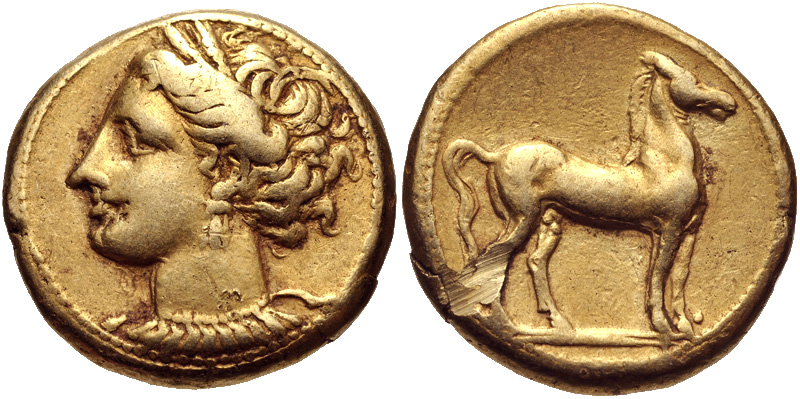
In the modern world where the exchange of real goods also takes place over a great distance, money as a means of exchange of goods between two parties has become indispensable. At first, a certain amount of gold, silver or bronze was used – useful everywhere, non-corruptible and easily transportable – then a seal was stamped on them indicating their weight or quantity. Finally, we came to the art of exchanging the currencies of one country with the currency of another country. Now this second way of exchanging a currency for another, which has occurred to the first way of exchanging a currency with a natural and real good, can contain the pitfall of being practiced not for the necessities of life, but for profit ( cf. St. Tommaso d’Aquino, Commentary on Aristotle’s Politics, lib. I, lez. 7; S. Th., II-II, q. 77, a. 4), but the greed for profit knows no limit and tends to exchange the means for the end and to make wealth the ultimate goal of human life. Therefore it is necessary to moderate the use of the exchange of coins in a trade aimed at the honest maintenance of oneself, of one’s family, of the common good of the Company or of one’s country, without making profit the purpose of trade, but it must be conceived only as the legitimate reward or salary for one’s work.
Indeed, without the exchange of currencies, many states would not be able to satisfy certain needs for natural commodities through bargaining. Therefore, the art of currency exchange must be authorized by the state, not for personal profit as an end, but only to the extent that it helps the real needs of the economy and politics. Money changers can make a certain profit from their work effort because they carry out a profession that is legal and useful to men, families and the State (see Tommaso de Vio, De Cambiais, chap. 5). The essential thing is that trade and exchange of currencies are ordered to the common good of the family (economy) and of the State (politics) and not exclusively to personal enrichment conceived as the ultimate goal of man (cremation) and to “creation” of apparent wealth by issuing paper money which does not correspond to real wealth.
The instability of the currency, the precariousness of work, constant unemployment, the growing devaluation are the ultimate consequences of banking cremation, which has subverted the healthy economy. It is a short step from this financial disorder to the Social Revolution.
In the posts that will follow – studying the history of the most powerful families and the great bankers – we will see how human history will be increasingly dominated by business or finance, how money has become the ultimate goal of man and states, which have slipped more and more. towards chaos and anarchy.
The real directors of human history since the end of the eighteenth century were, therefore, precisely those families not mentioned in the history books, limiting themselves to studying the deeds of the actors moved by the directors or of the “puppets” moved by the “puppeteers” “.
Some quick and obvious conclusions
There are different conceptions of humanity and therefore of its possible lifestyles. As we know, there is one in particular, funded by the so-called plutocracy, which makes material wealth the ultimate human end and submits both the individual and the state to finance, having gold as its God. Made up of the disorder of passions and avarice, it continuously produces negative impulses and instability, under the frenzy of a frantic search for material well-being. These are the moral bases with which the most powerful families have been trying for centuries to permeate peoples, standardizing their identities and needs.
An authentic and orderly society on solid principles, manages the currency only as a stable instrument of exchange of natural goods, to help families obtain what their members need to live in the material field sufficiently well and morally in a virtuous way in order to seize their happiness. Thus monetary and natural wealth becomes nothing more than an aid to the healthy constitution and management of the community and not its purpose.
The most powerful families – bibliography
Jean Bouvier “Les Rothschild” (1992) – purchase link
Ron Chernow “The Warburgs: The Twentieth-Century Odyssey of a Remarkable Jewish Family” (1994) – purchase link
David Rockefeller “Memoirs” (2002) – purchase link
Guy de Rougemont “Lazard Frères: Banquiers des Deux Mondes” (1840–1939) – ed 2010 – Paris- Google Scholar link
Pietro Ratto “I Rotschild e gli altri” – purchase link
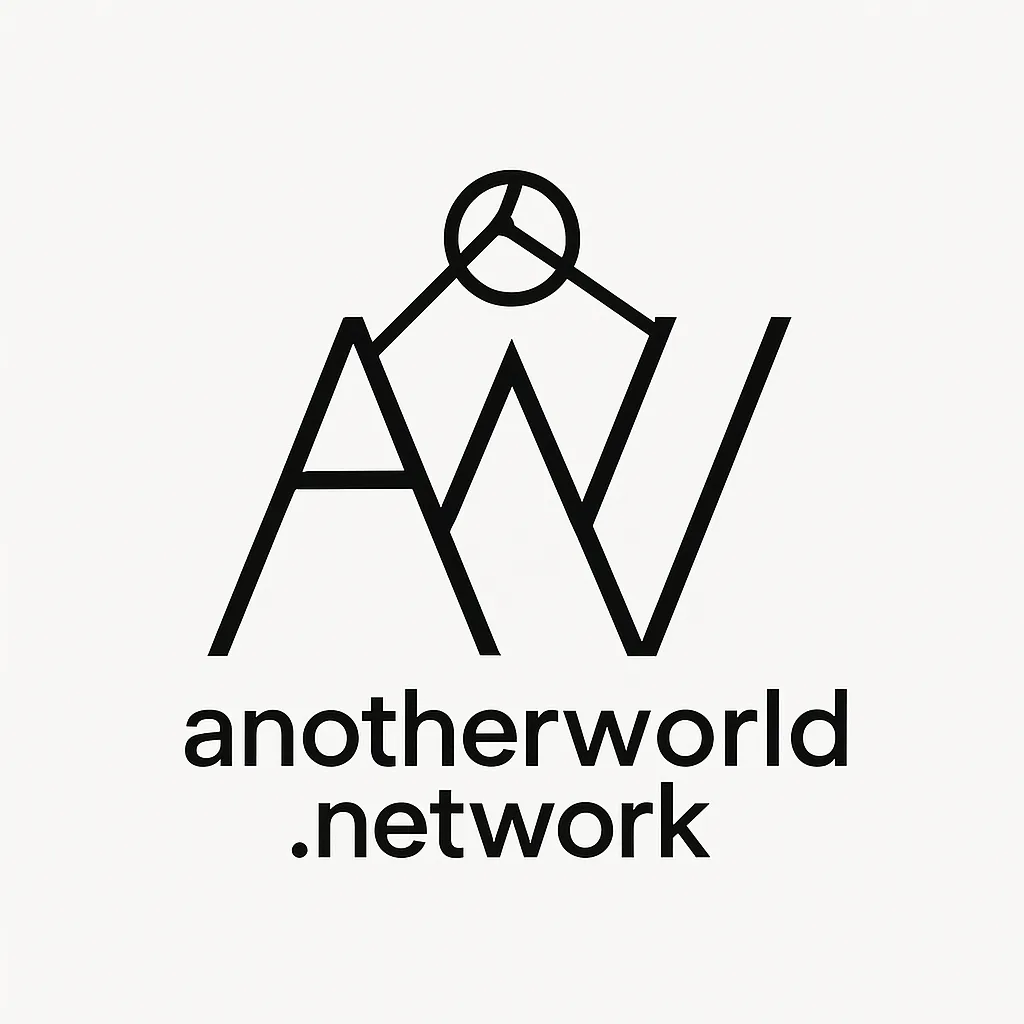
2 comments
[…] control through the modulation of sound waves Mental privacy: the new frontier of human rights The most powerful families and their influence on the world Who’s Elon Musk, what’s beyond the fable Transhumanist school education – the […]
[…] we documented in our previous article on the world’s most powerful families, modern history cannot be understood without knowing the genealogy and movements of these banking […]